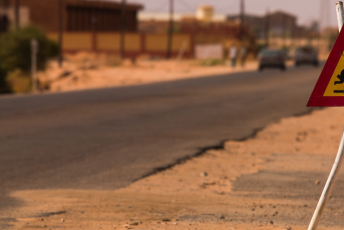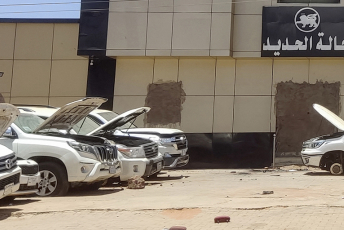Tens of thousands of people in Africa die every year from taking fake drugs. These medicines are the world’s most lucrative counterfeit goods, with a global market worth roughly US$200 billion, according to the World Health Organization. Africa accounts for around 42% of this market, due in part to the continent’s poorly monitored borders, weak legislation and poor healthcare services. Gabon has recently emerged as a major destination for these drugs. On 16 January 2020, over seven tonnes of counterfeit pharmaceuticals and cosmetics were destroyed in Libreville during a joint operation between the Gabonese Directorate of Medicines and Pharmacy and the Competition and Consumer Affairs Directorate against the illicit sale of counterfeit products.
On 23 December 2021, Gabonese customs officials seized a large shipment of prohibited pharmaceutical products coming from Cameroon and bound for Libreville. In January 2022, Gabon’s judicial authorities prosecuted traffickers from Congo-Brazzaville who had smuggled several boxes of counterfeit drugs, estimated at approximately US$34 000 (nearly 20 million francs), intended for sale in Gabon’s main cities. Other products including dietary supplements and pharmaceutical stimulants were also listed in the cargo. While Gabon’s government has made efforts to stem the tide of counterfeit medicine sold in urban markets, criminals have been able to circumvent these measures.
The smuggling of counterfeit medicine has a long history in Gabon. Unlicensed medicinal drugs started appearing on Libreville’s streets decades ago and continue to increase in range and accessibility. They were smuggled into Gabon from Benin, Côte d’Ivoire, Ghana, Nigeria and India, where original pharmaceutical products are substituted with a substandard drug that either excludes an active ingredient or contains a toxic substance. Tablets made in Nigeria appeared in corner shops before spreading to Libreville’s main markets, Mont-Bouët and Nkembo.
Criminals selling counterfeit medicine in Gabon include wholesale smugglers, cigarette vendors and street hawkers, who openly peddle painkillers, tranquillisers, cough syrups and rheumatism medication, among others. Counterfeit medicines are frequently found at roadside stalls, which are common in cities but rarely regulated. Most users of counterfeit medicine buy from roadside hawkers because fake drugs are cheaper and easier to obtain than genuine medicines. And so consumers disregard professional medical advice, the dangers these products pose to their health. Medical experts in the country’s major cities have reported many deaths, severe stomach and kidney ailments, and neurological disorders resulting from counterfeit medicines.
Gabon’s government has introduced several measures to curb the sale and use of counterfeit medicine. At the regional level, Gabon and 15 other African countries adopted the Rabat Resolution, a new framework to address the issue, in 2018. On the domestic front, Gabon’s penal code punishes anyone who is convicted of facilitating the purchase, sale, acquisition, use, marketing, transport, import, processing, supply and distribution of counterfeit medicines with imprisonment of up to 10 years or a fine of up to US$1 719 940.
Awareness campaigns on counterfeit drugs have been rolled out to alert authorities and the general public to the threats posed by counterfeit medicines. The government has also organised prevention campaigns in high schools in larger cities to raise awareness about the proliferation of counterfeit medicines and opioids. Libreville’s mayor has banned their sale from the city’s streets. Despite these initiatives, the counterfeit products are still being furtively sold at markets across the Gabonese capital. Weak law enforcement around the trade in fake drugs means that those manufacturing, selling and administering counterfeit medicines are not deterred from participating in this form of crime.
The issue of fake medicines in Gabon remains a public health crisis and measures to address it must consider the impact of these drugs on the public. Gabon must increase its law enforcement capacities to detect, investigate, arrest and prosecute those who smuggle counterfeit drugs into the country. This includes increased security across the borders through improved surveillance and technology.
In partnership with pharmaceutical companies and telecommunication service providers, Gabon should implement an initiative that allows consumers to quickly and cheaply verify the authenticity of any drugs purchased through innovative technological measures. The Mobile Authentication Service (MAS) is a proven strategy in use in Nigeria that uses scratch codes and Short Messaging Service (SMS) to empower consumers to verify the authenticity of any medicine at the point of purchase, in order to detect substandard and falsified medical products.
Here the Association of Gabonese Pharmacists’ central office, together with city mayors, must sustain these efforts. Importantly, public education and awareness campaigns on the dangers of counterfeit drugs and on the risks of substituting legitimate medicines for cheaper fake drugs needs to be ongoing and rolled out more widely. Together these initiatives must form part of a wider campaign to detect, disrupt and deter major manufacturers and distributors of counterfeit medicines undertaken by Gabon, together with multilateral agencies and the private sector. In addition, these actions all go hand in hand with a new holistic strategy developed by the United Nations Office on Drugs and Crime to combat crimes related to fake drugs in Central Africa. The strategy is based on five pillars: awareness creation, legislative assistance, innovation, capacity building and cooperation.
Oluwole Ojewale, Regional Organised Crime Observatory Coordinator – Central Africa







